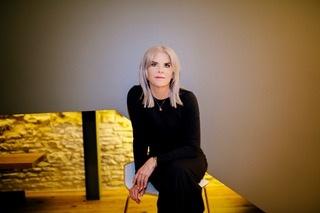I first met Sherri Turpin, CEO at ZVRS and Purple Communications, over two years ago, in August 2021, when I interviewed her about video relay services (VRS) for the Deaf and hard-of-hearing communities. I followed up with her six months later for another discussion on the topic. Turpin is yet another of the innumerable recurring characters who have helped drive the accessibility storyline of this column over time.
Turpin and I recently reconnected over email for an unofficial third installment in our interview series, following the FCC’s announcement late last month that it approved further funding for the Telecommunications Relay Services Fund, a five-year extension which runs through June 30, 2028. According to Turpin, the federal agency’s decision ensures “VRS users can access highly qualified American Sign Language interpreters and benefit from improved communications technology,” adding congressional review is expected in December, during which time official approval of the funding is expected.
News of the FCC’s decision on funding VRS comes as I recently reported on an accessibility-filled agenda for the agency’s latest public meeting, including topics pertinent to the Deaf community, such as access to 911.
“In plain terms, these are historic changes. The FCC will increase the federal fund that supports VRS. Ultimately, this will deliver historic improvements to the nation’s VRS program, a bedrock of daily communications for millions of Deaf and hard-of-hearing people,” Turpin said to me last week about the heavy significance of the FCC’s choice. “This is the very investment that we, alongside the extended Deaf community and hearing allies, have been advocating for the past several years and the FCC delivered. Now, all VRS providers have the resources needed to solve the gross communications inequities that the deaf community has faced for far too many years. The FCC has sent a very clear message: the Deaf and hard-of-hearing community matters and communications access must be prioritized as a human right fully appreciated and enjoyed not by some of us but by all of us.”
Turpin explained there are two reasons the news is important. First and foremost, she said, it ensures the Deaf community “always has access to the same modern communications that we all have.” She noted in 1990, when the Americans with Disabilities Act was signed into law, it promised “functional equivalency in communications” for disabled people. As modern technology evolves with evermore rapidity, obsolescence comes easy; as Turpin noted, what was cutting-edge a few months ago could be obsolete today. “We have to ensure VRS rates always keep pace with the advanced telecommunication innovations so that everyone gets to use them, not just some of us,” Turpin said.
For Turpin, the funding news marks the first time in a long time that the VRS program has been “funded appropriately.” It’s a literal and figurative investment in America’s Deaf community—one that ensures they have the same level of access to communications as anyone else.
“It is super critical that this investment continue in the future [and] ensure the VRS program always keeps pace with technology’s rapid evolution,” Turpin said. “This cannot be a one and done. We must always stay caught up. Technology never stops empowering hearing people to live their best lives. The exact same must be true for Deaf people.”
She went on: “All thriving industries have a few fundamental things in common: they are continually innovating, they are continually investing in R&D, they are competitive and always providing consumer choice. No industry can accomplish any of this without a commitment to continually support and maintain its financial structure.”
As to the actual human impact on the FCC’s continued commitment to VRS, Turpin told me the heart of this story lies with activism. Members of the Deaf community, along with their hearing allies, have banded together in fighting for the aforementioned functional equivalency for over a decade. In 2011, the Deaf and Hard of Hearing Consumer Advocacy Network began lobbying the FCC to actually implement the Americans with Disabilities Act’s mandate for equivalent alternatives to communications. According to Turpin, the work involved an “extensive and multi-faceted advocacy campaign” designed to repeatedly educate the public, policymakers, and business leaders on what she called “the gross inequities the deaf community faces with respect to their daily communications.” The advocacy work included multiple FCC filings, nationwide awareness campaigns headlined by luminaries in the Deaf community such as Troy Kotsur and Warren “Wawa” Snipe, appearances at the South by Southwest festival in Austin, Texas and on Capitol Hill, and a cavalcade of media features in multiple national news outlets. More recently, ZP Better Together started a national “Stand With the Deaf Community” campaign that, Turpin told me, urged the FCC to take action and invest in the Deaf and hard-of-hearing community. In the end, the campaign would garner more than 12,000 signatures.
Turpin called the journey of doing this work was “often challenging” but said everyone was unrelenting and never gave up on the big picture. “From the very start, we were asking the FCC to take action—to step up and invest in the deaf community—to ensure the Deaf community’s fundamental right to communications access is no different from what hearing people take for granted each and every day,” she said.
“Collectively, we asked the FCC to take action and invest in the Deaf community and that is exactly what they did,” Turpin added. “It is exactly because of collective activism that history has been made.”
With the funding to go on, Turpin said it enables her and her team the ability to get busy and do what they do best. The team, she said, can now get back to “developing the most innovative technology and interpreting solutions to ensure Deaf and hard-of-hearing individuals have access to the same 21st century communications that hearing people take for granted each and every day.” Closing the inequity gaps, Turpin said, includes working on such initiatives as e911 services, single phone numbers—oftentimes, deaf people have one number for video calls and another for texting—as well as research and development into technologies and community outreach. To put it glibly, this takes money.
“I have said time and time again: it’s not hard to do all of this [work in accessibility],” Turpin said. “Now, with the proper investment, we can.”
Turpin expressed she “couldn’t be happier” by the FCC’s ruling, and expressed much gratitude towards chairwoman Jessica Rosenworcel and commissioners Brendan Carr, Nathan Simington, and Geoffrey Starks for “their leadership to ensure inclusive and accessible modern communications for all, the Deaf community included.” Because of the agency’s decision to continue funding, Turpin said the ultimate goal of equal access is ”so much closer to reality.” She added most people, herself very much included, have no idea what it’s like to be a Deaf person; as such, advocacy and education are crucial elements for equality. With the help of numerous allies in the Deaf community, Turpin learned a ton and “soon became utterly shocked by the gross communications inequities.” If she and other hearing people faced inaccessible technologies, no one would stand for it. Showing empathy via technology isn’t difficult. Abled people have to put in the work.
“It’s the 21st century—everyone should care. It’s the golden age of technology. We can do better,” Turpin said.
A few years ago, Turpin created a video in which the team tried to illustrate what it’s like to be Deaf and nudge people towards equality.
“My ultimate ultimate dream is that someday soon this video will no longer be needed [because] we all will understand and respect the Deaf experience. We will all understand that Deaf and hearing [people] are the same [and] all of us have the same fundamental human right to full communication access,” Turpin said of her long-term vision of equality. “As a nation, we have more work to do but for right now, the FCC’s recent decision is a major and historic step forward to our nation living up to its decades old promise of true functional equivalence for all.”
Read the full article here









